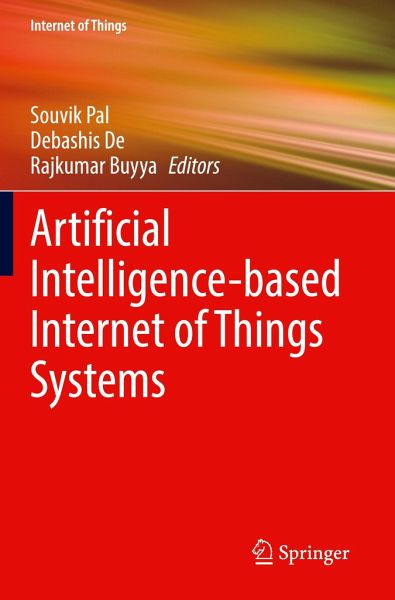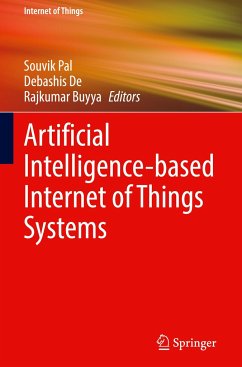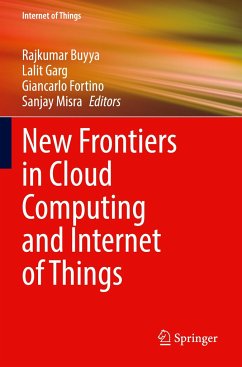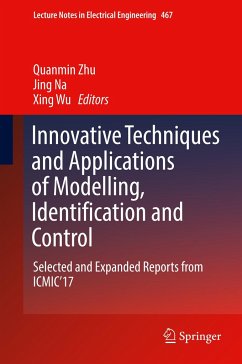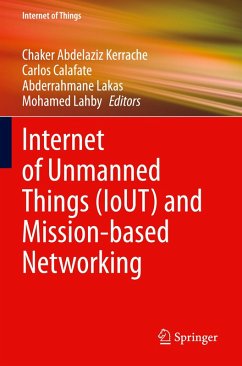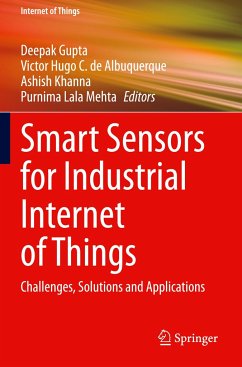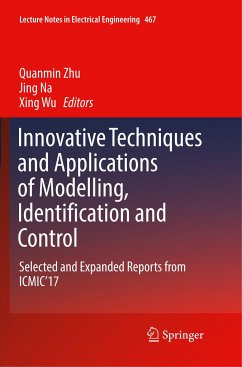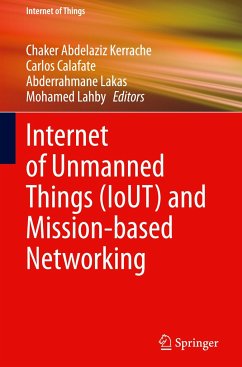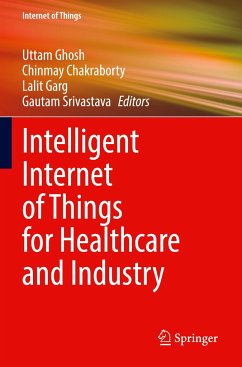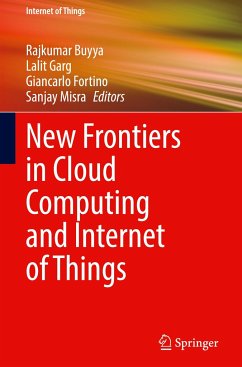Souvik Pal, PhD, is an Associate Professor in the Department of Computer Science and Engineering at Sister Nivedita University (Techno India Group), Kolkata, India. Prior to that, he was associated with Global Institute of Management and Technology; Brainware University, Kolkata; JIS College of Engineering, Nadia; Elitte College of Engineering, Kolkata; and Nalanda Institute of Technology, Bhubaneswar, India. Dr. Pal received his MTech, and PhD degrees in the field of Computer Science and Engineering from KIIT University, Bhubaneswar, India. He has more than a decade of academic experience. He is author or co-editor of more than 15 books from reputed publishers, including Elsevier, Springer, CRC Press, and Wiley, and he holds three patents. He is serving as a Series Editor for "Advances in Learning Analytics for Intelligent Cloud-IoT Systems", published by Scrivener-Wiley Publishing (Scopus-indexed); "Internet of Things: Data-Centric Intelligent Computing, Informatics, and Communication", published CRC Press, Taylor & Francis Group, USA; "Conference Proceedings Series on Intelligent Systems, Data Engineering, and Optimization", published CRC Press, Taylor & Francis Group, USA; Dr. Pal has published a number of research papers in Scopus / SCI/SCIE Journals and conferences. He is the organizing chair of RICE 2019, Vietnam; RICE 2020 Vietnam; ICICIT 2019, Tunisia. He has been invited as a keynote speaker at ICICCT 2019, Turkey, and ICTIDS 2019, 2021 Malaysia, ICWSNUCA 2021, India. His professional activities include roles as associate editor and editorial board member for more than 100+ international journals and conferences of high repute and impact. His research area includes cloud computing, big data, internet of things, wireless sensor network, and data analytics. He is a member of many professional organizations, including MIEEE; MCSI; MCSTA/ACM, USA; MIAENG, Hong Kong; MIRED, USA; MACEEE, New Delhi; MIACSIT, Singapore; and MAASCIT, USA. Prof. Debashis De earned his M.Tech from the University of Calcutta in 2002 and his Ph.D (Engineering) from Jadavpur University in 2005. He is the Professor and Director in the Department of Computer Science and Engineering of the Maulana Abul kalam Azad University of Technology, West Bengal(Former West Bengal University of Technology), India, and Adjunct research fellow at the University of Western Australia, Australia. He is a senior member of the IEEE. Life Member of CSI and member of the International Union of Radio science. He was awarded the prestigious Boyscast Fellowship by the Department of Science and Technology, Government of India, to work at the Herriot-Watt University, Scotland, UK. He received the Endeavour Fellowship Award during 2008-2009 by DEST Australia to work at the University of Western Australia. He received the Young Scientist award both in 2005 at New Delhi and in 2011 at Istanbul, Turkey, from the International Union of Radio Science, Head Quarter, Belgium. His research interests include mobile cloud computing, Green mobile networks. He has published in more than 260 peer-reviewed international journals and 200 International conference papers, six researches monographs and ten text books. His h index is 27 and i10 index is 100. Total citation is 3350. He is Associate Editor of journal IEEE ACCESS, Editor Hybrid computational intelligence, Journal Array, Elsevier. Dr. Rajkumar Buyya is a Redmond Barry Distinguished Professor and Director of the Cloud Computing and Distributed Systems (CLOUDS) Laboratory at the University of Melbourne, Australia. He is also serving as the founding CEO of Manjrasoft, a spin-off company of the University, commercializing its innovations in Cloud Computing. He served as a Future Fellow of the Australian Research Council during 2012-2016. He has authored over 625 publications and seven text books including "Mastering Cloud Computing" published by McGraw Hill, China Machine Press, and Morgan Kaufmann for Indian, Chinese and international markets respectively. He also edited several books including "Cloud Computing: Principles and Paradigms" (Wiley Press, USA, Feb 2011). He is one of the highly cited authors in computer science and software engineering worldwide (h-index=132, g-index=294, 92,500+ citations). "A Scientometric Analysis of Cloud Computing Literature" by German scientists ranked Dr.Buyya as the World's Top-Cited (#1) Author and the World's Most-Productive (#1) Author in Cloud Computing. Dr.Buyya is recognized as a "Web of Science Highly Cited Researcher" for four consecutive years since 2016, a Fellow of IEEE, and Scopus Researcher of the Year 2017 with Excellence in Innovative Research Award by Elsevier and recently (2019) received "Lifetime Achievement Awards" from two Indian universities for his outstanding contributions to Cloud computing and distributed systems. Software technologies for Grid and Cloud computing developed under Dr.Buyya's leadership have gained rapid acceptance and are in use at several academic institutions and commercial enterprises in 40 countries around the world. Dr. Buyya has led the establishment and development of key community activities, including serving as foundation Chair of the IEEE Technical Committee on Scalable Computing and five IEEE/ACM conferences. These contributions and international research leadership of Dr.Buyya are recognized through the award of "2009 IEEE Medal for Excellence in Scalable Computing" from the IEEE Computer Society TCSC. Manjrasoft's Aneka Cloud technology developed under his leadership has received "2010 Frost & Sullivan New Product Innovation Award". Recently, Dr.Buyya received "Mahatma Gandhi Award" along with Gold Medals for his outstanding and extraordinary achievements in Information Technology field and services rendered to promote greater friendship and India-International cooperation. Heserved as the founding Editor-in-Chief of the IEEE Transactions on Cloud Computing. He is currently serving as Co-Editor-in-Chief of Journal of Software: Practice and Experience, which was established 50 years ago. For further information on Dr.Buyya, please visit his cyberhome: www.buyya.com
